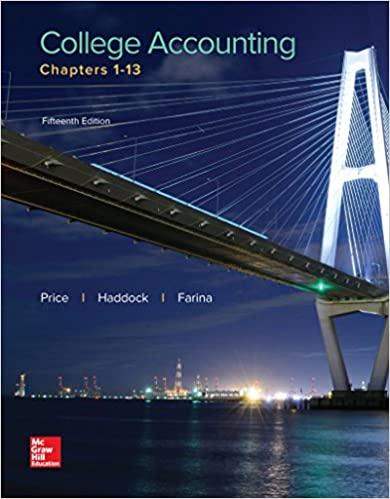

Problem 2 On January, 2019, Top Company acquired 80 percent of Bottom Company for $594,000 in cash. Bottom's total book value on that date was $610,000, and the fair value of the noncontrolling interest was $148,500 The newly acquired subsidiary possessed a trademark (10-year remaining life) that, although unrecorded on Bottom's accounting records, had a fair value of $75,000. Any remaining excess acquisition-date fair value was attributed to goodwill. Top decided to acquire Rettom so that the subsidiary could furnish component parts for the parent's production process. During the ensuing years, Bottor sold inventory to Top as follows: Year 2019 2020 2021 Cost to Bottom Company $100,000 100,000 120,000 Transfer Price $140,000 150,000 160,000 Gross Profit Rale 28.6% 33.3 25.0 Transferred Inventory Still Held at End of Year (at transfer price) $20,000 30,000 68,000 Any transferred frerchandise that Top retained at year end was always put into production during the following period HU 1111111 The following separate financial statements are for Top and Bottom as of December 31, 2021. Top has applied the equity method to account for this investment. Top Company Bottom Company Sales $ (900,000) $ 1500,000) Cost of goods sold 598,000 300,000 Operating expenses 210,000 80,000 Gain on sale of land ....... (28,000) -0- Equity in earnings of Bottom Co. (60,000) Net income ............................................................. $ (180,000) $ 120,000 Retained earnings, 1/1/21 $ (620,000) $ (430,000 Net income... (180,000) (120,000) Dividends declared 55,000 50,000 Retained earnings, 12/31/21 $ (745,000) $ 1500,000) Cash and accounts receivable. 348,000 410,000 Inventory...... 430,400 190,000 Investment in Bottori Co. 737,600 Land 454,000 280,000 Equipment 270,000 190,000 Accumulated depreciation (180,000) (50,000) Total assets $ 2,060,000 $ 1.020,000 Liabilities......... (715,000) (120,000) Common stock (600,000) (400,000) Retained earnings, 12/31/21 (745,000) (500,000) Total liabilities and equities $ 12,060,000) $ (1.020,000) 101 a. Required By how much did Bottom's book value increase during the period from January 1, 2019, through December 31, 2020? b. During the initial years after the takeover, what annual amortization expense was recognized in connection with the acquisition-date excess of fair value over book value? What amount of intra-entity gross profit exists within the parent's inventory figures at the beginning and at the end of 2021? d. The parent reports Income of Bottom Company of $84,400 for 2021. How was this figure calculated? Prepare the December 31, 2021, worksheet entries required by the transfers of inventory. C. e. Problem 2 On January, 2019, Top Company acquired 80 percent of Bottom Company for $594,000 in cash. Bottom's total book value on that date was $610,000, and the fair value of the noncontrolling interest was $148,500 The newly acquired subsidiary possessed a trademark (10-year remaining life) that, although unrecorded on Bottom's accounting records, had a fair value of $75,000. Any remaining excess acquisition-date fair value was attributed to goodwill. Top decided to acquire Rettom so that the subsidiary could furnish component parts for the parent's production process. During the ensuing years, Bottor sold inventory to Top as follows: Year 2019 2020 2021 Cost to Bottom Company $100,000 100,000 120,000 Transfer Price $140,000 150,000 160,000 Gross Profit Rale 28.6% 33.3 25.0 Transferred Inventory Still Held at End of Year (at transfer price) $20,000 30,000 68,000 Any transferred frerchandise that Top retained at year end was always put into production during the following period HU 1111111 The following separate financial statements are for Top and Bottom as of December 31, 2021. Top has applied the equity method to account for this investment. Top Company Bottom Company Sales $ (900,000) $ 1500,000) Cost of goods sold 598,000 300,000 Operating expenses 210,000 80,000 Gain on sale of land ....... (28,000) -0- Equity in earnings of Bottom Co. (60,000) Net income ............................................................. $ (180,000) $ 120,000 Retained earnings, 1/1/21 $ (620,000) $ (430,000 Net income... (180,000) (120,000) Dividends declared 55,000 50,000 Retained earnings, 12/31/21 $ (745,000) $ 1500,000) Cash and accounts receivable. 348,000 410,000 Inventory...... 430,400 190,000 Investment in Bottori Co. 737,600 Land 454,000 280,000 Equipment 270,000 190,000 Accumulated depreciation (180,000) (50,000) Total assets $ 2,060,000 $ 1.020,000 Liabilities......... (715,000) (120,000) Common stock (600,000) (400,000) Retained earnings, 12/31/21 (745,000) (500,000) Total liabilities and equities $ 12,060,000) $ (1.020,000) 101 a. Required By how much did Bottom's book value increase during the period from January 1, 2019, through December 31, 2020? b. During the initial years after the takeover, what annual amortization expense was recognized in connection with the acquisition-date excess of fair value over book value? What amount of intra-entity gross profit exists within the parent's inventory figures at the beginning and at the end of 2021? d. The parent reports Income of Bottom Company of $84,400 for 2021. How was this figure calculated? Prepare the December 31, 2021, worksheet entries required by the transfers of inventory. C. e








